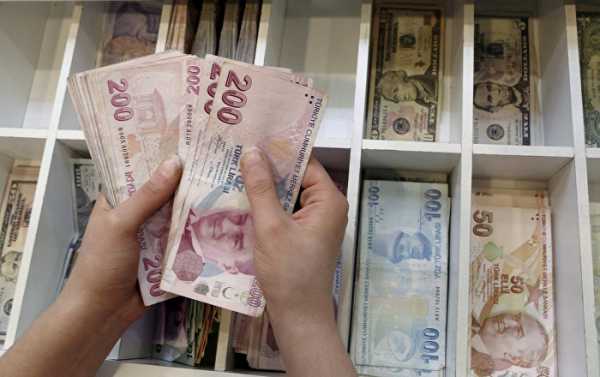
The Eurozone’s banking sector, along with stock and bonds exchanges, are expecting the economic turbulence in Turkey to affect their business – while European policymakers are trying to evaluate potential risks.
Kristian Rouz — The Turkish economy is facing its latest sustainability test: the national currency — the lira — plunged against its major peers after the announcement of US sanctions last week.
While Ankara is preparing emergency policy measures to maintain macroeconomic stability, bankers and finance experts in the Eurozone are trying to evaluate the potential effects that Turkish turmoil might have on Europe.
The lira hasn’t been the only casualty of the financial storm in Turkey, as the nation’s financial assets took a blow across-the-board — including stocks and bonds. The Turkish economy has been ailing since the start of this year, with the first signs of a major currency crisis emerging shortly after the government announced its fiscal package to support economic growth several months ago.
The lira has dropped by 33 percent since January. Turkey is a major exporter of consumer goods, and its manufacturing sector is heavily reliant on the overseas markets. A weaker lira is expected to support the international competitiveness of Turkish goods, which are becoming cheaper for foreign customers.
This might pose a risk to other countries’ economic stability and trade balances — including the EU, the US, China, Japan, and the Middle East, according to Timothy Ash, a senior emerging markets strategist at Bluebay Asset Management.
However, the Turkish financial turmoil likely won’t be a major international event, Ash suggested.
“I don’t see a huge global contagion. Turkey is still a relatively small economy, $850 billion, and its unlikely this will be a sovereign debt event,” Ash said.
However, European bankers have voiced concern over their significant exposure to the Turkish market. Over the past few decades, several banks across the Eurozone have lent money to Turkish businesses — and as the latter are now facing challenges to their dollar- or euro-denominated operation profitability; they might struggle servicing their debts.
According to the Bank for International Settlements (BIS), Turkish entities owe $83.3 bln to the banks in Spain, $38.4 bln to French banks, and $17 bln to Italian lenders. Potential insolvencies in Turkey could undermine the already-fragile banking systems of Southern Europe — something the European Central Bank (ECB) has been worried about for years.
Reflecting these concerns, one of the EU’s largest stock indices — Stoxx 600 — dropped into the red for 2018 last week.
“The European Central Bank is concerned that some banks in France, Italy and Spain may not be fully hedged against the precipitous falls in the Turkish Lira,” Michael Hewson of CMC Markets UK said.
Meanwhile, emerging markets — including Turkey, Argentina, and South Africa — have been under pressure due to yet another structural issue, which is their excessive reliance on foreign dollar-denominated loans. A wave of volatility in emerging market currencies earlier this year happened after the US Federal Reserve undertook several interest rate hikes, thus rendering dollars more expensive to borrow.
But at that point, international financial institutions thought of the Turkish woes as a regional mishap. Now the concerns appear to be widening to a global scale.
“For some time now, investors have been looking at the unfolding currency crisis in Turkey as a local difficulty; however the accelerating speed of the declines appears to be raising concerns about European banks’ exposure to the Turkish banking system,” CMC Markets UK’s Hewson said.
However, some Eurozone bankers say that although the Turkish turmoil could rattle international financial markets, its effects on longer-term economic growth are still subdued — despite the Eurozone’s close trade ties with Turkey.
“Even if Eurozone goods exports to Turkey were to fall by, say, 20 percent, this would subtract no more than 0.1 percentage point from growth in the big Eurozone,” analysts from Berenberg Bank wrote in a recent report.
Experts said Turkey’s GDP only stands at 6.5 percent of the Eurozone’s combined GDP, meaning any negative effects are highly unlikely to deal a devastating blow to Europe. Nonetheless, Turkey is four times larger than Greece — and a realistic prospect of a default in Greece back in 2015 was a bit more than a minor nuisance for the Eurozone.
But Turkey, unlike Greece, isn’t part of the Eurozone itself.
As far as bilateral trade is concerned, analysts are expecting a decline in European exports to Turkey as they are becoming too expensive for Turkish customers. In the meantime, Turkey’s exports to Europe are unequivocally projected to grow, meaning European manufacturers are poised to face tougher competition in the domestic market.
Eurozone companies will be “pretty quick in identifying and switching to new markets. Selling more elsewhere would offset some of the hypothetical decline in Eurozone exports to Turkey,” Berenberg Bank’s team of analysts said.
Sourse: sputniknews.com






